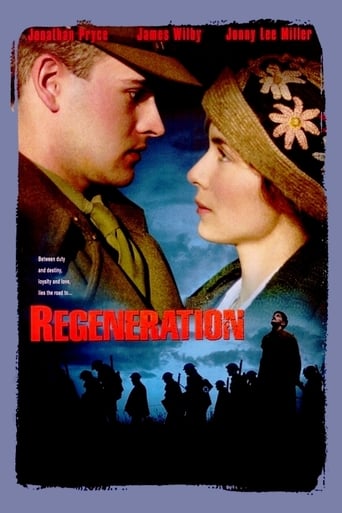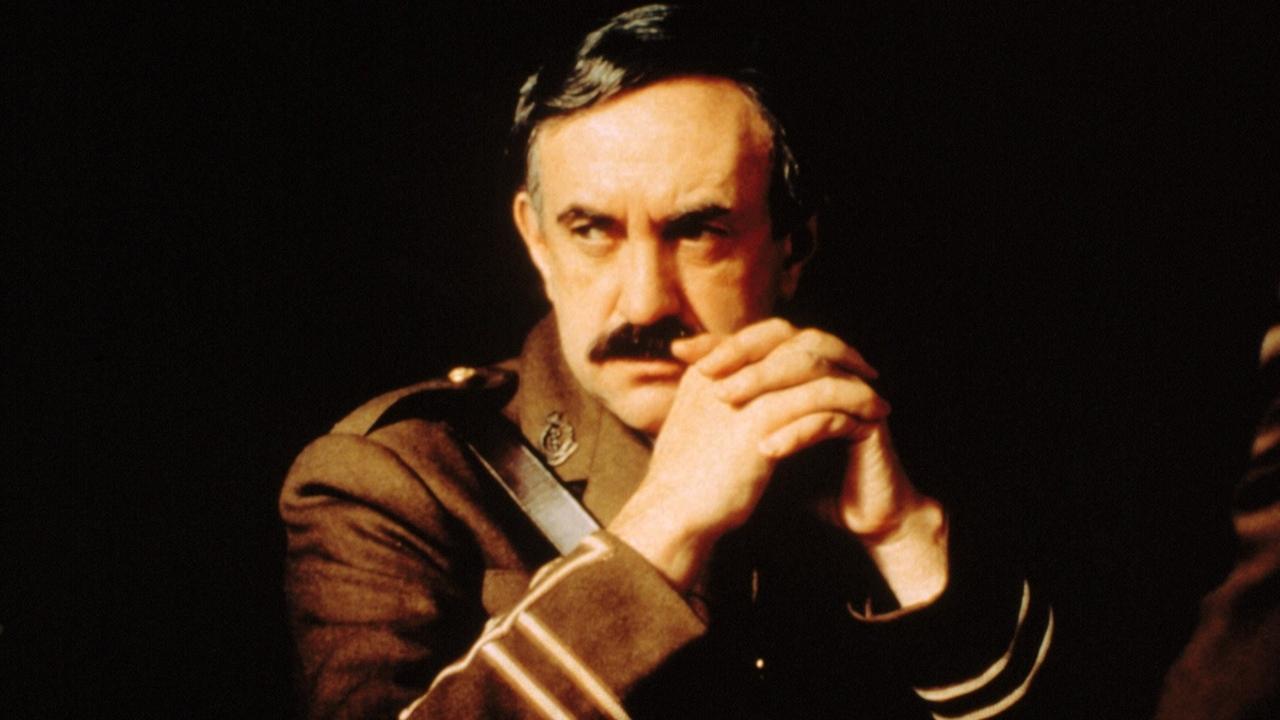verbusen
I really enjoyed this film. I saw it as "Regeneration" (not Behind The Lines which a reviewer said was shortened) which Amazon video recommended to me since I am a history buff and have been watching a lot of military documentaries there. I am a military veteran (US, served in Iraq), and have had nightmares in the past according to my wife, so when I watch programs about veterans I am emotionally more involved and usually in a more powerful way than a typical drama. It was a cathartic experience and a good cry for me. The film was very very interesting early on but all the different characters and a long playing time made me lose interest in spots. Watching it at home at my leisure was an added distraction.The moment that really impacted me was with John Neville's character using electro-shock in a tortuous way, very dramatic and hard to watch. I have no idea how accurate this film is (it doesn't seem very accurate with my perception of the early 1900's mental treatments, but maybe England was more advanced and war does advance medicine faster that peacetime does not), but it was a good watch for me. Great acting all around! Recommended for military drama fans, 9 of 10.
Neil Turner
Regeneration tells the story of the hospitalization during World War I of English poet, Siegfried Sassoon. It seems he was committed to a facility treating victims of shell-shock because he made the following statement about the war:"I am making this statement as an act of wilful defiance of military authority, because I believe that the War is being deliberately prolonged by those who have the power to end it. I am a soldier, convinced that I am acting on behalf of soldiers. I believe that this War, on which I entered as a war of defence and liberation, has now become a war of aggression and conquest. I believe that the purpose for which I and my fellow soldiers entered upon this war should have been so clearly stated as to have made it impossible to change them, and that, had this been done, the objects which actuated us would now be attainable by negotiation. I have seen and endured the sufferings of the troops, and I can no longer be a party to prolong these sufferings for ends which I believe to be evil and unjust. I am not protesting against the conduct of the war, but against the political errors and insincerities for which the fighting men are being sacrificed. On behalf of those who are suffering now I make this protest against the deception which is being practised on them; also I believe that I may help to destroy the callous complacency with which the majority of those at home regard the contrivance of agonies which they do not, and which they have not sufficient imagination to realize".Due to the influence of fellow poet, Robert Graves, Sassoon was confined to the hospital rather than being confined to prison.The film opens with this statement after having panned from above the scenes of death in the mud so familiar to soldiers in that especially bloody war. I was struck that the statement could have been easily made by any soldier honorably serving today in the Middle East.Even though the film is based upon a work of fiction, three of four main characters were real people - Sassoon; young writer, Wilfred Owen; and anthropologist, William Halse Rivers who did extensive work with victims of the mental trauma of war. Owen died in the war in 1918 at the age of twenty-five. Halse died in 1922 at the age of fifty-eight. Sassoon lived until 1967, dying at the ripe old age of eighty-one.The film is expertly produced giving insight into the view of soldiers who are emotionally devastated by war as well as those treating them. Keep in mind that the general attitude was that any treatment should lead to the soldier returning to the battlefields. Halse is more sympathetic to the trials of these soldiers, but it is his aim to return them to be killed - or survive with a little luck. The battle scenes are somewhat dreamlike as most take place in the minds of the patients. Even with their grim subject, they are beautifully done.This is not a happy film. Its subject prevents that. It is, however, a production with fine acting, authentic locations, and a script that causes you to think about the plight of the soldier in all wars at all times. It caused great sadness in me knowing that I will die thinking that mankind will never find a solution to sending young men out to be slaughtered in the name of politics or religion just as those who have died hundreds of years before me have thought. Do you suppose that people - at sometime in the future - will die knowing that political and religious differences are always settled without the spilling of blood?
Caz1964
I watched this film last night,i thought it should have been on earlier,ma-by 9 o clock instead of 11.15pm as it was a lot better than films they usually show at that time on a week day.It was a very moving film with some brilliant acting,and the story is actually based on fact,as Sigfried sassoon did meet Wilfred Owen in a hospital for shell shocked officers.The rest of the film is fiction.The film makes a point in saying that only the officers got this privilege of being aloud rest when they suffered battle fatigue,the lesser ranks had to carry on until close insanity before they were discharged as sick. My own grandfather was one of these. He carried on having fits into the 1930s which led to his death from a bad fall in 1935 aged only 36,these were the other casualties of ww1. The British army did not want to recognise shell-shock and was totally unprepared for it.This film portrayed a very important part of history which unfortunately is almost forgotten,i found the film to be a very moving tribute to all those who fought and died in it.
deejtee
Although based in a country house in Scotland, it has universal appeal as a movie to make you think about war and about PEOPLE and their personal experiences of it. Jonathan Pryce is MAGNIFICENT. Where is his Oscar, after all even the US had noticed there was a world war by 1997 !


 AD
AD




